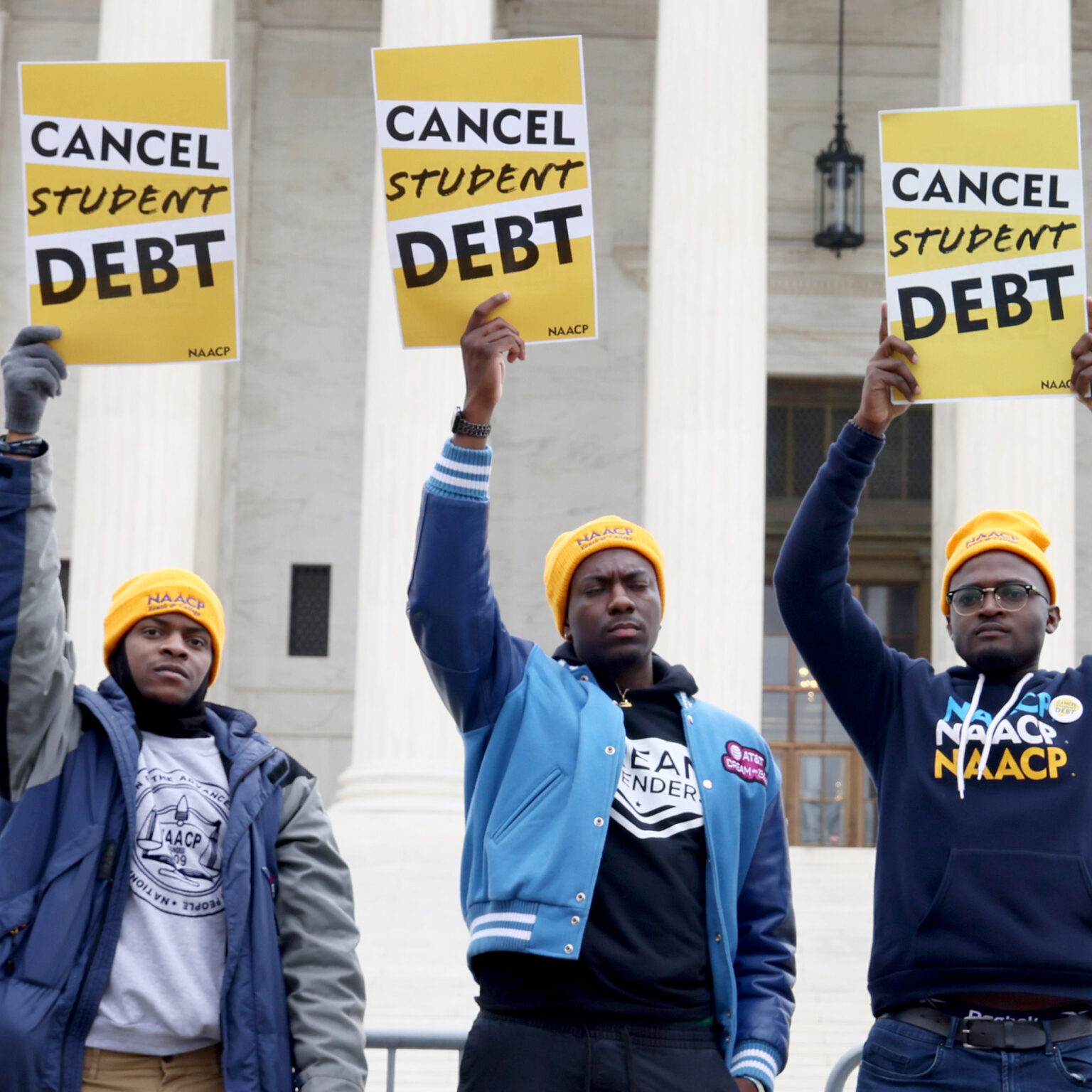Global Courant 2023-05-29 15:00:00
WASHINGTON — The Biden administration’s ambitious plan to pay off billions of dollars in student loan debt has been shelved for months, blocked by lower courts and left its fate in the hands of skeptical conservative Supreme Court judges.
The decision day is fast approaching.
The stakes are high, with 43 million people eligible for up to $20,000 in debt relief.
The total cost if the program ever goes into effect has been calculated to be more than $400 billion, according to the administration to estimate that 20 million people would have forgiven all their remaining student debt.
The proposal is also politically important to President Joe Biden, as tackling student loan debt was a key pledge he made during the 2020 campaign trail to boost younger voters.
But with the conservative-majority Supreme Court suspicious of broad claims about the executive branch, Biden’s plan faces a major hurdle.
“We fought hard to get here, where the president has promised historic debt relief. We are hopeful that the Supreme Court will still rule on the side of student debt, but we also have a clear view,” said Mike Pierce, executive director of the Student Borrower Protection Center, an advocacy group dedicated to alleviating student debt.
The two cases related to Biden’s debt relief plan are among 30 the Supreme Court must rule in its current term, which traditionally ends in the last week of June.
The court, which has a conservative majority of 6 to 3, will also rule on a host of other major issues, the most notable of which is another education-related dispute that could end consideration of race in college admissions.
The next day the court is expected to issue rulings is Thursday, the first day of June, with decisions following thick and fast for the rest of the month.
The wave of rulings will once again put the spotlight on the court a year after the conservative majority flexed its muscles by overturning the landmark Roe v. Wade decision on abortion rights and expanding gun rights. In the following months, some have questioned the court’s legitimacy and ethical questions have been raised about some of its members, most notably Conservative Justice Clarence Thomas.
During oral arguments in the student loan cases in February, conservative justices expressed doubts about whether the Biden administration had the authority to forgive large chunks of student debt. The court is considering two cases, one brought by Missouri and five other states and the other brought by two people in student loan debt.
The challengers say the administration’s proposal — announced by Biden in August and originally scheduled to go into effect last fall — violated the Constitution and federal law, in part because it bypassed Congress, which they say has the sole power to make laws regarding student loan forgiveness.
The administration has proposed forgiving up to $10,000 in debt for borrowers who make less than $125,000 a year (or couples who jointly file taxes and earn less than $250,000 a year). Pell Grant recipients, the majority of borrowers, would qualify for an additional $10,000 in debt relief.
The relief would have a significant impact, according to Alan Aja, a Brooklyn College professor in New York who studies racial wealth disparities and signed a letter in support of the government.
People like his students, often members of low-income minority groups, would be more likely to finish their education or consider more ambitious job openings or pay off other debts if Biden’s plan goes into effect, he said.
“In their minds, it would be transformative,” Aja added.
In defense of the plan, the Biden administration cited a 2003 law, the Higher Education Relief Opportunities for Students Act, or HEROES Act, which says the government can provide relief to student loan recipients when there is a “national emergency,” allowing acting to ensure that people are not “worse off financially” as a result of the emergency.
The challengers say the language in the HEROES Act is not specific enough to approve a proposal as broad as Biden’s plan, an argument conservative justices seemed sympathetic to.
It seems that the only recourse for the Biden administration to prevail would be for the court to conclude that the challengers have no legal standing to bring their case in the first place because they cannot demonstrate that they have been through the program would be harmed.
If the administration won the case, it would not remove all possible impediments to the plan’s progress, as other cases are pending in lower courts, but if the challengers have no legal standing, it would suggest other people and entities to take cases to tighten. probably won’t either.
Ilya Somin, a professor at George Mason University’s Antonin Scalia Law School, said a ruling for Biden on the standing issue “is likely to doom all other cases,” though other people or entities yet to sue could do better .
“Tear My Hair Out”
In the affirmative action cases, the conservative justices indicated they tended to end consideration of race in college admissions in legal challenges arising from the University of North Carolina and Harvard University.
A ruling to that effect could lead to a significant drop in Black and Hispanic matriculation rates at the country’s most selective colleges and accelerate changes in the criteria used to recruit students.
Other cases the judges will rule in the coming weeks include congressional redistribution disputes from Alabama and North Carolina that could further weaken the Voting Rights Act and limit state court oversight of elections, respectively.
The court will also rule on a case in which an evangelical conservative Christian web designer wants to avoid being punished under a Colorado anti-discrimination law for refusing to create same-sex marriage websites.
One theme missing from this year’s year-end story is retirement, with no speculation that any of the justices plan to step down from their lifetime appointments.
With the court coming under heavy scrutiny recently, Chief Justice John Roberts was defensive in public remarks last week, indicating that as a separate arm of government the court should manage its own affairs.
But as the term enters a period where the judges frantically try to finalize their verdicts, while at times bitterly contradicting each other, he sought to portray an institution that sings along as usual.
“I’m happy to continue to say that a voice of anger has never been raised in our conference room,” he said.
At the same event, Liberal Judge Elena Kagan, often on the losing side in the court’s biggest cases, delivered a more nuanced assessment.
While she praised Roberts’s qualities as a judge, she was candid about the major discord on the ideologically divided bench.
On some of those issues, she said, “I could really pull my hair out over the things he thinks.”








